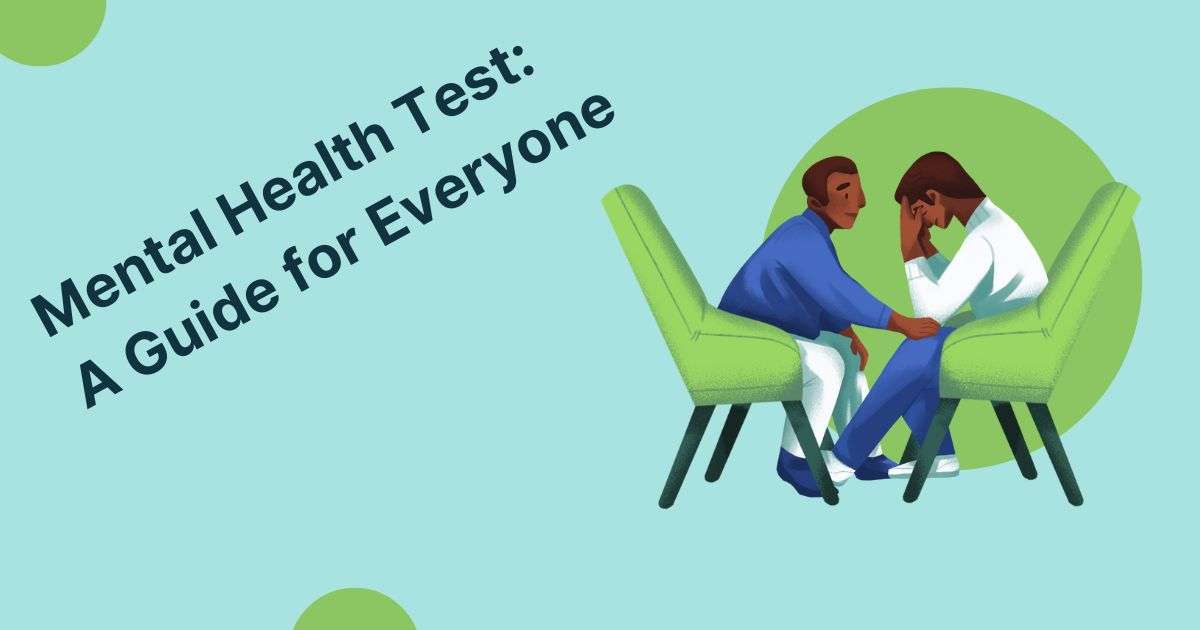Mental health is a major aspect of our overall well-being. Mental health test can provide valuable insights, helping us recognize potential issues and seek appropriate support. In this article, we’ll explore what mental health tests are, how they work, and how everyday people can benefit from them.
What Are Mental Health Tests?
Mental health tests are assessments designed to evaluate various aspects of our emotional and cognitive functioning. They can help identify symptoms related to conditions such as depression, anxiety, stress, and more. These tests are not diagnostic tools but serve as indicators, prompting further exploration and discussion with a mental health professional.
Why Take a Mental Health Test?
- Self-Awareness: Mental health tests allow us to gain insight into our emotional well-being. They help us recognize patterns, triggers, and areas where we might need support.
- Early Intervention: Detecting potential issues early can prevent them from escalating. Taking a test can prompt us to seek professional help sooner.
- Normalization: Mental health affects everyone. By taking a test, we normalize the conversation around emotional well-being and reduce stigma.
Types of Mental Health Tests
- Depression Screening:
- These tests assess symptoms related to depression, such as persistent sadness, loss of interest, and changes in sleep or appetite.
- Example: The PHQ-9 questionnaire rates depression severity based on nine questions.
- Anxiety Assessment:
- Anxiety tests evaluate symptoms like excessive worry, restlessness, and panic attacks.
- Example: The GAD-7 measures generalized anxiety symptoms.
- Stress Questionnaires:
- These assess stress levels and coping mechanisms.
- Example: The Perceived Stress Scale (PSS) gauges how stress impacts our lives.
- Well-Being Surveys:
- These focus on positive aspects of mental health, including life satisfaction and happiness.
- Example: The World Health Organization-Five Well-Being Index (WHO-5).
Taking a Mental Health Test
- Choose a Reputable Source:
- Use reliable platforms like Mental Health America (MHA), Talkspace, or PsyCom.
- Ensure confidentiality and privacy.
- Answer Honestly:
- Be truthful about your feelings and experiences.
- Remember, there are no correct or incorrect responses.
- Interpret Results Wisely:
- A positive result doesn’t necessarily mean you have a mental illness.
- Consult a mental health professional for a comprehensive assessment.
Examples
Certainly! Let’s delve into some real-life scenarios where mental health test can be beneficial:
- College Students During Finals Week:
- Riya, a college student, is feeling overwhelmed with exams, deadlines, and lack of sleep. She takes an online stress assessment and realizes she needs to prioritize self-care. Riya starts practicing mindfulness and seeks support from her campus counseling center.
- New Parents Adjusting to Parenthood:
- Amit and Priya, new parents, experience mood swings and sleep disturbances. They take a postpartum depression screening test together. Priya’s results indicate possible symptoms, prompting her to seek professional help. Amit learns how to support her during this challenging phase.
- Working Professionals Battling Burnout:
- Karan, a software engineer, notices persistent fatigue, irritability, and decreased productivity. He takes a burnout risk assessment and discovers he’s at high risk. Karan discusses work-life balance with his manager and explores stress management techniques.
- Retirees Coping with Loneliness:
- Mrs. Gupta, a retired teacher, feels isolated after her husband’s passing. She takes a loneliness scale test and realizes she needs social connections. Mrs. Gupta joins a local seniors’ club, attends art classes, and gradually feels less lonely.
- Teens Navigating Social Pressures:
- Ananya, a 16-year-old, faces peer pressure, body image concerns, and anxiety. She takes an anxiety self-assessment and learns coping strategies. Ananya also confides in her school counselor, who provides emotional support.
Remember, mental health tests are tools—not definitive diagnoses. They empower us to take proactive steps toward well-being. If you resonate with any of these examples, consider exploring a mental health test. You’re not alone, and seeking support is a sign of strength! 🌟
How can I support someone who needs help?
Certainly! Supporting someone in need can make a significant difference in their life. Here are some practical ways to offer emotional and practical support:
- Ask and Listen:
- Start by asking open-ended questions like:
- “How are you feeling today?”
- “Is there anything you’d like to talk about?”
- Actively listen without distractions. Show empathy and give them your full attention.
- Start by asking open-ended questions like:
- Be Present:
- Sometimes, just being there for someone matters. Sit with them, hold their hand, or offer a comforting hug.
- Physical closeness can provide emotional reassurance.
- Avoid Judgment and Advice:
- Refrain from judging their feelings or experiences.
- Instead of giving advice, validate their emotions and let them express themselves.
- Authenticity Matters:
- Be genuine and sincere. Authenticity fosters trust and connection.
- Share your own experiences if relevant, but avoid making it about you.
- Stay Positive:
- Encourage optimism and hope. Remind them that challenges are temporary.
- Use positive language and focus on solutions.
- Offer Practical Help:
- Assist with daily tasks, such as cooking, cleaning, or running errands.
- Volunteer your time at local charities or nonprofit organizations.
- Educate Yourself:
- Learn about their situation or condition. Understand what they’re going through.
- Knowledge helps you provide informed support.
- Check In Regularly:
- Send a text, make a call, or visit them periodically.
- Let them know you care and are there for them.
- Small Gestures Matter:
- Send a thoughtful message, a handwritten note, or a small gift.
- These gestures show you’re thinking of them.
- Distract When Needed:
- Sometimes, distraction can be helpful. Watch a movie together, play a game, or engage in a hobby.
- It gives them a break from their worries.
Remember, everyone’s needs are different. Adapt your support based on their individual situation. Your kindness and compassion can make a significant impact. 🌟
Also Read:- Best Ways To Improve Your Stamina
